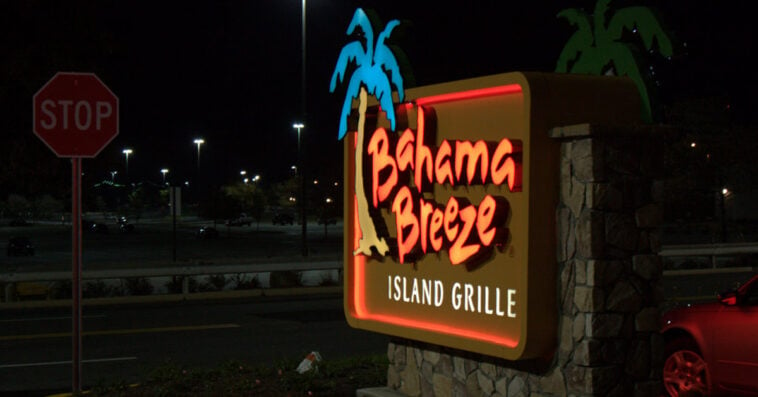For years, it offered a slice of island life far from the coast — a go-to escape for fruity cocktails, steel drum vibes, and Caribbean comfort food. But now, one of America’s most beloved tropical-themed restaurant chains is facing an uncertain future. Fans may want to savor their next visit… because something big is on the horizon.
Darden Restaurants Ends Investment in Bahama Breeze
Darden Restaurants, the culinary powerhouse behind a diverse portfolio of dining concepts, has made a decisive move regarding its Caribbean-inspired chain, Bahama Breeze. CEO Rick Cardenas confirmed that the company has ceased all further investment in Bahama Breeze locations, effective immediately.
This strategic shift follows the abrupt closure of more than a third of the chain’s “underperforming” restaurants in May, marking a pivotal moment for the brand known for its vibrant, tropical ambiance and dishes like Yuca cheese sticks, Jamaican jerk wings, and jerk chicken pasta.
During an earnings call on Friday morning, Cardenas articulated the rationale behind the decision: “We have made the difficult decision that these remaining locations are not a strategic priority for us.” He further elaborated on the future of the brand, stating, “We also believe this brand and these restaurants have the potential to benefit from a new owner. Consequently, we will be considering strategic alternatives for Bahama Breeze.”
The initial wave of 15 closures in May impacted a wide array of states, including Florida, Illinois, Massachusetts, Michigan, Nevada, New Jersey, and New York. This leaves the fate of the remaining 14 Bahama Breeze locations hanging in the balance.
Cardenas noted that if Darden fails to secure an interested buyer for the brand, these locations might be rebranded and converted into other, more established Darden concepts, such as Olive Garden or LongHorn Steakhouse.
Beyond Bahama Breeze: A Wider Crisis in Casual Dining
The move to potentially offload Bahama Breeze reflects broader turbulence across the casual dining industry, where numerous chains are grappling with mounting economic pressures and shifting consumer habits.
While some closures stem from underperforming locations or internal mismanagement, many brands are also being squeezed by rising competition, inflation, and labor shortages. Over the past few months alone, more than 135 locations across well-known restaurant franchises have shuttered as operators scramble to stay afloat.
Hooters made headlines in March after filing for bankruptcy to address a staggering $376 million in debt, attributing the decision to declining consumer spending and escalating operational costs. A spokesperson called the closures a “difficult decision,” adding:
“Importantly, Hooters is here to stay, and by optimizing our business in support of our long-term goals, Hooters will be well-positioned to continue our iconic legacy under a pure franchise business model. We are committed to supporting our impacted team members throughout this process and are incredibly grateful to our valued customers for their loyalty and dedication to the Hooters brand.”
Other household names have followed suit. Earlier this year, Red Robin confirmed plans to shut down around 70 underperforming restaurants by 2030, with 10 to 15 closures already slated for this year. Denny’s also announced that up to 90 locations could close by year’s end as part of a larger effort to streamline operations and boost profitability.
Industry analysts say mid-tier dining chains are facing a perfect storm of challenges, from inflation and staffing woes to evolving customer expectations. For many, including Bahama Breeze, survival may depend on whether there’s room to adapt — or whether it’s time to walk away.
Source: The Sun U.S.

